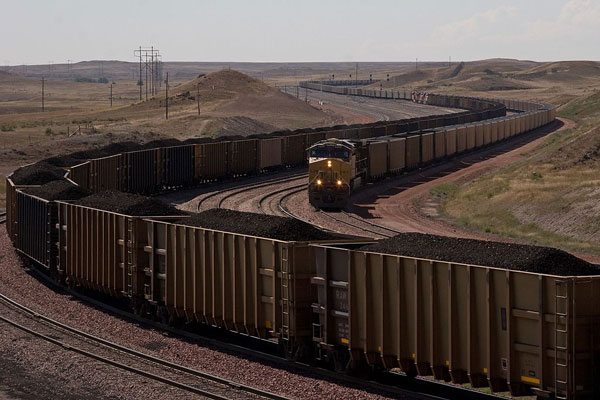
September 15, 2017; Inside Climate News
Nonprofits know the value of measurable outcomes and usable data supplied by clear-cut studies. Accuracy from studies supplied by governmental agencies is essential for the nonprofits that need the data for their work. WildEarth Guardians, a self-described “force of nature,” and the Sierra Club have taken the Bureau of Land Management to court for making major assumptions on the environmental impact of fossil fuel projects.
Last Friday, a Denver federal appeals court agreed with the nonprofits and told the Bureau of Land Management (BLM) that it must repeat their climate impact analysis on four massive coal leases because they are “irrational” economically. BLM’s argument for the leases, basically, was that if they did not mine the coal in these leases, they would mine it down the road. The judges stated that the agency cannot assume that if dirty fuels were left intact in one place, they would rise to the surface on their own, along with greenhouse gasses, in another location.
This ruling overturns a lower court decision for the agency and the coal-mine companies. (As we have reported in earlier stories—you can read some here, here, and here—the Trump administration seeks to reverse many Obama coal-mining actions.) BLM used this rationale to approve new leases in 2010 in the Powder River Basin, which encompasses areas reaching into Wyoming and Montana that contains 2 billion tons of coal. Those leases were for Arch Coal and its Black Thunder mine as well as Peabody Energy’s North Antelope-Rochelle mine.
The BLM argued the leases would have no climate impact; the nonprofits worry that saying that fails to acknowledge that leaving the coal where it is would actually benefit the climate. Burning the coal in those added leases would add billions of tons of carbon dioxide to the atmosphere—the gas that exacerbates climate change. Judges have been ruling that that the 1970 National Environmental Policy Act requires the inclusion of future damage in statements and cautions.
Sign up for our free newsletters
Subscribe to NPQ's newsletters to have our top stories delivered directly to your inbox.
By signing up, you agree to our privacy policy and terms of use, and to receive messages from NPQ and our partners.
The appeals court favorably quoted WildEarth’s argument that this was “at best a gross oversimplification.” The group argued that Powder River coal, which the government lets the companies have at rock-bottom prices, is extraordinarily cheap and abundant. If this supply were cut off, prices would rise, leading power plants to switch to other, cheaper fuels. The result would be lower emissions of carbon dioxide.
For the BLM to argue that coal markets, like a waterbed, would rise here if pushed down there, was “a long logical leap,” the court ruled.
“This is a major win for climate progress, for our public lands, and for our clean energy future,” said Jeremy Nichols of WildEarth Guardians. “It also stands as a major reality check to President Trump and his attempts to use public lands and coal to prop up the dying coal industry at the expense of our climate.”
The case is not over, though. The lower court ruling was not thrown out, which would have stopped the mining. The only instructions for the lower court were not “to rely on an economic assumption [that] contradicted basic economic principles.” The nonprofits remain the watchdogs on this, looking for accurate outcomes.—Marian Conway













